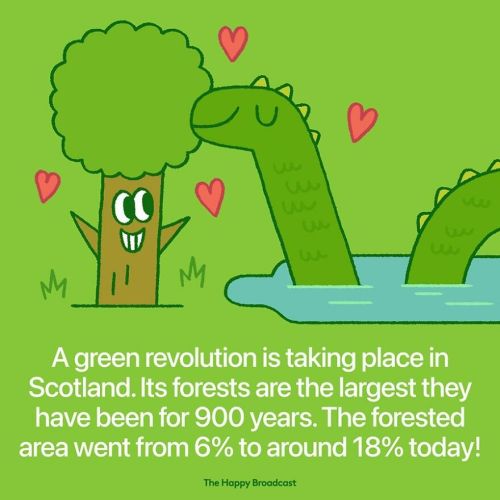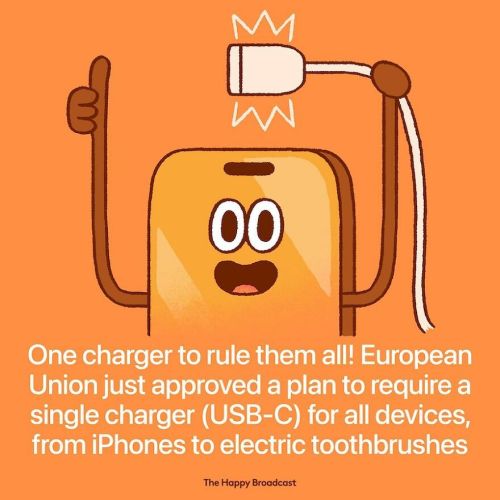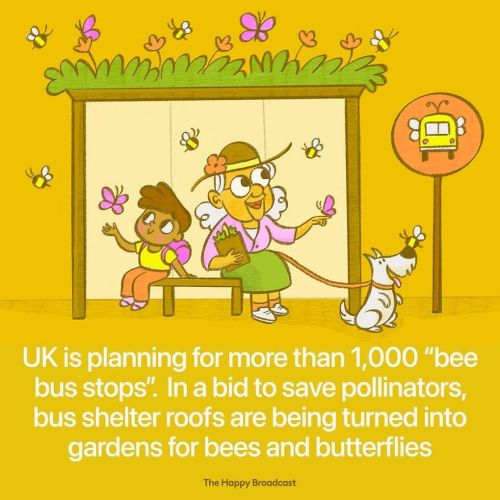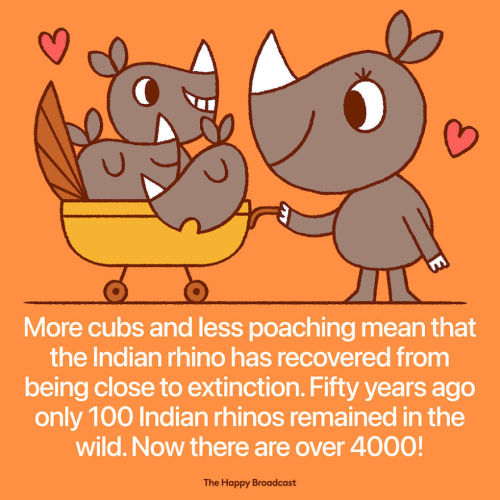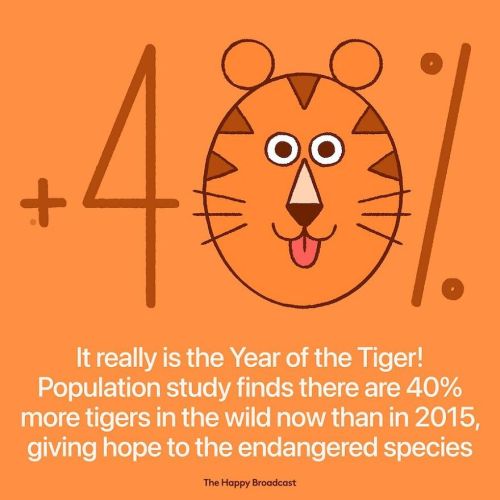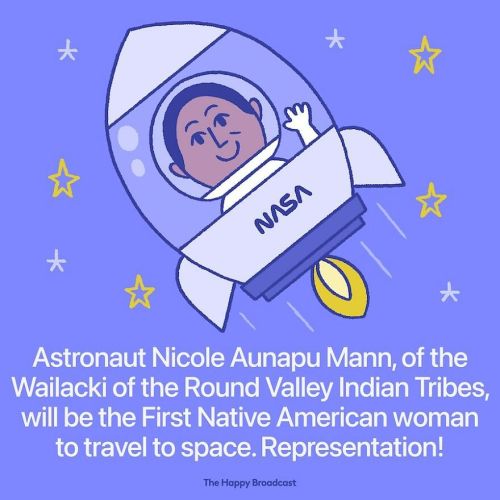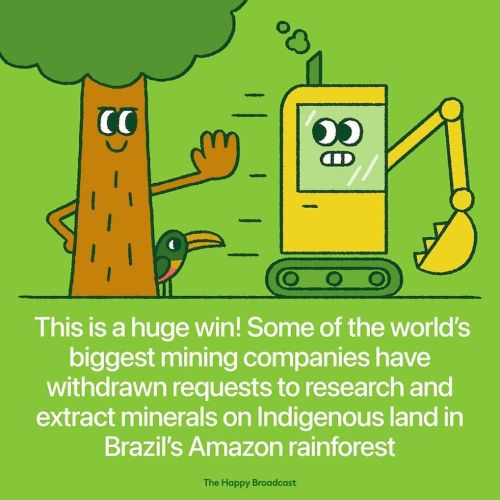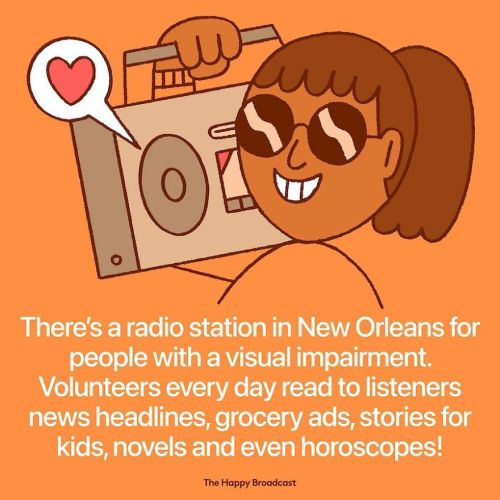Environmentalism - Tumblr Posts

by henrikj on Flickr.Horseshoe Bend, Colorado River - near Page, Arizona.


TEGULA DIPTYCH | proliferation & genocide
Saddest thing ever is reading an academic paper about a threatened or declining species where you can tell the author is really trying to come up with ways the animal could hypothetically be useful to humans in a desperate attempt to get someone to care. Nobody gives a shit about the animals that “don’t affect” us and it seriously breaks my heart


The kid truly care about our planet more than adults and politicians
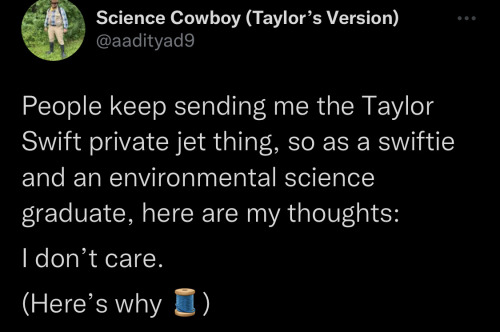
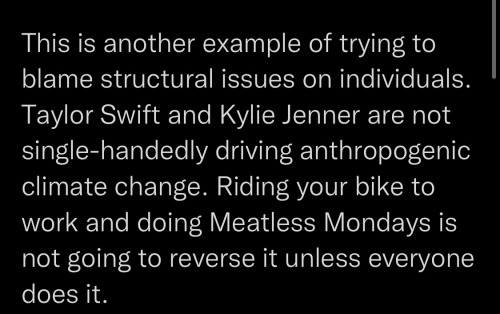
I’m going to scream. Pushback on the narrative that climate breakdown can be averted by individual decisions centres around the fact that NORMAL PEOPLE do not contribute to a significant amount of carbon emissions cos the average NORMAL PERSON emits 7 tons of CO2 a year. Not Taylor fucking Swift who has emitted over 8000 tons of emissions this year SO FAR. Her CO2 emissions from private jet use alone are equivalent to that of TWO THOUSAND normal people. We absolutely should be blaming individuals if those particular individuals are emitting two thousand people’s worth of emissions.
Small Steps: Household Chores Edition
to produce less trash, don’t use dryer sheets (they don’t really do anything anyway)
scrape plates rather than rinsing them before you put them in the dishwasher - they’re gonna get wet anyway
sweep first, then vacuum what you couldn’t get - it saves electricity
Hey, it’s the little things - home cleaning doesn't have to be as wasteful as it could be. We sometimes think that our tiny daily habits don’t have an effect on anything else, but added up, it’s resulted in where we are today. The things you were taught in kindergarten, about littering and recycling - they wanted you to know that stuff for a reason. Preserving our planet is more important than ever, wether you care about keeping trash out of the oceans or the effects of deforestation.
It isn’t all money and politics, though the actions of global leaders can do a lot of good - or bad. This is our world, our future, and we have a responsibility to make it a good one. Start small, and work your way up from there. Changing our habits seems daunting, but just keeping these little alternatives in mind will help you remember next time. And for a good cause, why not?
Welcome back - hope you had a happy January 1st! Everyone has been talking about their hopes for 2018. I’ve heard themes of unity, peace, and working towards a better future. I’m happy that everyone is talking about about a better new year, but I’ve been thinking about something else.
Climate change is an issue that is more important than ever. To kick off the new year, I wanted to take us on a short, much-needed tour of what it is and what could happen. Hope this answers some questions~
True or False: Climate change is real. True. Climate change refers to the change in global climate patterns, seen from the late 20th century onward. Increased levels of carbon dioxide in the atmosphere are produced by fossil fuel emissions; as atmospheric gases damage the ozone layer, heat from the sun’s rays is trapped between the earth and space. More heat means warmer weather, and scientists everywhere agree that temperatures have risen drastically in recent years. There will be many negative outcomes of climate change, especially if nothing is done to prevent it. The earth’s temperatures are changing too much and too fast, and so many places will suffer - if they aren’t already. If a global effort to battle this issue doesn’t kick in, we’ll face the consequences.
True or False: Humans have nothing to do with it. False. Humans have everything to do with it: we’re the reason it’s happening. There are many harmful effects human activity has on the environment, and we have to understand what we’ve done before we can decide what to do. With rising populations, more resources will be needed to provide the world’s population with food, transportation, medicine, and more. Countries need space to develop and harvest food for their citizens. Cars, trains, and other forms of transportation take people where they need to go every day. Public institutions like hospitals and schools are vital to a community. All these factors of daily life required energy sources and materials; often, those efforts end up creating excess waste. Every day, humans produce trash just by going about their daily lives. Using a paper napkin, bagging groceries with plastic bags, ordering takeout - all these actions will result in something being thrown out. Our trash ends up in landfills, bodies of water, or as litter blowing around the street. When bits of plastic or other discarded materials make their way into the environment, habitats are polluted and species suffer. While we can’t totally eliminate the waste we produce, we can make those numbers smaller. By reducing how much we use, reusing what we can, and recycling what we can’t, we can make the environment a cleaner, healthier place. ‘The Greenhouse Effect’ refers to the increasing levels of atmospheric gases harming our planet. As I said before, increased amounts of gases cause heat from the sun to be trapped in the earth’s atmosphere - the main culprit of climate change. Many of our activities require the burning of fossil fuels, which emits carbon dioxide and other gases. But there are better ways to power your home or car, such as solar power instead of electricity, or vegetable oil rather than gas. Unless we switch to these renewable energies, the main cause of climate change will remain.
True or False: Ecosystems and species will suffer. True. A warming planet will negatively effect many environmental patterns, habitats, and species. In the arctic, ice is melting at an alarming pace because of warmer temperatures. Sea levels are rising, endangering many land habitats and the animals who live there. Polar bears, for example, are loosing homes and hunting grounds because of climate change. Heat waves, shifting rainfall patterns, and other weather-related events will become stronger. A warming planet causes more heat waves and droughts, while excess rainfall and worse storms have become more frequent in recent years. All these disasters will cause global ecosystems to suffer, forcing threatened species to migrate - or go extinct. Everything in nature is connected. Rising temperatures cause more water to evaporate into water vapor, which makes up precipitation in storms and hurricanes. If more ice is melting, there is more water in the oceans, which contributes to that risk. Underwater temperatures are rising as well, which harms the inhabitants of coral reefs and other habitats. When an animal or plant species faces extinction, the biodiversity of its habitat suffers. Species that depend on it may loose a vital food source; if that species’ population shrinks, those that depend on it will suffer as well. When the food web takes enough hits, the entire structure could unravel at the seams. Climate change and what it means for the natural world is an issue with multiple moving parts, and some of those could be disastrous.
True or False: Climate change effects us. True. Rising sea levels threaten coastal cities, many of which could be underwater in just a couple of decades. Without biodiversity or stable ecosystems, the plants and animals we depend on for food could be wiped out in a similar time frame. Storms and other weather-related disasters have already damaged many people’s lives, and so many more would be uprooted. With these desperate possibilities, all your sic-fi movies could come true.
True or False: We can’t do anything. 100% False. There’s so much we can do, as individuals and as an international community. But larger steps must be taken sooner, if we want to slow down this global catastrophe. Today, many people are ‘going green’, a term that refers to making more environmentally friendly and responsible decisions. Cutting down on how much you throw out, driving a car less often, and being conscientious about the effects of your actions all will lead to a healthier planet. Changes in your daily habits have a larger effect than you think. Human emissions of greenhouse gases are the main cause of climate change - energy transition is the key. Conversion to solar and wind power, among other alternatives, will offer more jobs and be safer for the environment. But while citizens are taking action, international policy isn’t doing nearly enough. Society has put off action for so long, scientists say that the worst outcomes of climate change might not be that far off. Widespread change must happen ASAP, if we want a chance at winning the war against climate change. And that starts with you! Join organizations that do research on renewable energies, provide aid to damaged ecosystems, or advocate for government action. Find ways you can go green within your own home. Talk to others about what you know, and what needs to be done in the future.
The way I see it, all the rights in the world won’t matter if this planet isn’t sustained - & that fate rests in our hands. My hope for 2018 is that people everywhere will crack down on preventing climate change. My New Year’s resolution is to play my part by doing what I can for environmental efforts - I hope you will too. Happy New Year!
Small Steps #2: Hygiene Edition
Turn off the water while brushing your teeth.
Use a washcloth for washing your face, rather than running the faucet.
In the shower, turn the water off while you wash yourself. Lather, then rinse at the end - more water saved in a shorter amount of bath time.
Rinse, lather, rinse, and you’re done. Little habits aren’t so hard to break, or make; just keep these details in your head, and you’ll remember more and more often when the time comes. That bit of extra effort will be good for your water bill and the environment. The effect of your actions isn’t as small as you think, so let’s make sure it’s a good one.
World Water Day is celebrated internationally on March 22. Declared by the UN 25 years ago, this day annually focuses on our most important resource: water. But damaged ecosystems, water pollution, and climate change are hurting the supply. The 2018 theme for World Water Day is how we can use natural solutions to solve modern-day challenges. Replanting forests and protecting water-based ecosystems will balance the water cycle. Recycling and reusing wastewater can provide energy and water to urban areas. Solutions are everywhere, and its time we started looking for them.
We use water in our homes to drink, cook, and clean with. But 95% of water is used outside the home, for agriculture, industry, and textiles. The rising population in our developing world requires more water than ever. In a decade, we might need twice as much water as Earth can supply.
In places like Cape Town, South Africa, droughts are breaking records held for over a century. The city awaits “Day Zero,” when, likely this summer, it will shut off it’s taps. My youth choir has the chance to travel on international goodwill tours every other summer. Last August, we traveled to South Africa, spending two out of our three weeks in Cape Town. The drought had been going on for years at that point; shower times were limited to two minutes, and every public building we performed in had signs reminding us to conserve water. When “Day Zero” comes, Cape Town’s schools, libraries, and homes won’t have running water. Until it rains, residents will have to get their water by other means. I don’t want to think about such a catastrophe happening here in Boston.
So what can you do? Water woes are endless, and go way beyond a few plastic bottles. But here’s some small steps (shameless plug lol) to help you conserve our most important resource.
Buy less. As goods travel around the world, so does the water that made them (metaphorically, of course). Buying one less shirt or cooking pot can save up to 700 gallons on another continent. By changing your habits, you can have a global impact.
Flip the Switch. Water is used to prepare coal, extract oil, and build solar panels. The energy that lights your homes is the top user of water, after agriculture. So conserving electricity is a double pat-on-the-back for you.
Go (Part-time) Vegetarian. A single burger uses up to 600 gallons of water. Taking meat off the menu one or two days a week will cut down on your water footprint (so to speak). So if you’ve grown up in an Italian household like mine where vegetarianism will get you disowned, no problem: a part-time no-meat diet will do.
& Now the Basics… Turn off the faucet overtime you brush. I know you’ve heard it before, but you can save up to 4 gallons every time you brush. Thats almost 3,000 gallons a year.
Today, over 2 billion people are living without clean drinking water at home, and over half of them draw from contaminated sources. 663 million people spend countless hours each day trekking and queuing to distant sources, effecting their health and education. Since our actions have a direct impact on the global supply, celebrate your World Water Day by spreading the word about these issues and the many ways to solve them.
What I want in 2019 - a prevention plan for climate change. preferably involving lots of solar panels and immigrant employees. - an end to world hunger. preferably involving sustainable agriculture and lots of international aid. - for everyone to have access to clean water. See my ‘World Water Day’ post for details.
And hey, @ my classmates - stop using ‘gay’ as an insult. It ain’t cute.
ooh, y’know what would be even better!? Let’s have everyone stop saying “he or she” or “his or hers” to refer to someone who’s gender we don’t know. Doesn’t matter the context - its unnecessary and cis-normative and hard on the tongue. If you wanna be fancy and impress your friends, try saying “guys, gals, and non-binary pals,” (as coined by Thomas Sanders). Or just use “they”. “They” is fine, guys.
Thank you for coming to my TED talk.
Small Steps #3: Tea Edition
Here’s a few extra tips for your morning routine, if you’re a tea-drinking environmentalist like me:
Use a ceramic mug rather than a paper or styrofoam cup.
Rinse and reuse mugs, rather than sending them right to the dishwasher
Try to use tea bags that aren’t attached to string and paper. A little less material going into the trash.
Compost tea bags after use (not the string and paper - cut those off). Ripping the bag helps the decomposition process.
I’ve said it before and I’ll say it again: the smallest habits build a greater impact than we think. If we keep at them day after day, it adds up, the same way a short drive to the supermarket contributes to the amount of greenhouse gases in our atmosphere.
Some people look down on the environmentally friendly actions we can take, especially when they appear too small to matter. “You just want to feel like you’re doing something” - but I am. We tend to discredit small acts of conservation, because they don’t seem to make a dent. But such an assumption is dangerously arrogant. Each of us can do something, and we must.
The 49th Earth Day is today! This year’s theme is Protect Our Species, so here’s an essay about 3 of the most endangered species in the world.
#1: Pangolins These little guys are the best. They eat insects with tongues longer than their bodies, and roll up into little scaly balls when afraid. In Malay, the word ‘penggulung’ fittingly means ‘one that rolls up’. There are 8 different species of pangolin; four are native to east Asia, and four to Africa. Every species is labeled either ‘vulnerable’ or ‘endangered’. In Africa, pangolin scales are used to attract potential lovers, and as medicine in China and other parts of Asia. The meat is considered a delicacy. These beliefs have created a vast illicit trade network of pangolin parts; the creatures themselves are being captured, killed, and cooked almost to extinction. Mother pangolins wrap themselves around their babies to protect them. But greater steps must be taken to save these mammals.
#2: Coral Reefs Not gonna lie: for the longest time, I thought coral reefs were big rocks at the bottom of the ocean, with maybe a few plants here and there. Turns out, corals, ancient organisms that are related to sea anemones, are a vital part of our oceans. An individual coral is called a pylop. A pylop will grow a calcium-based exoskeleton; when a colony of thousands of pylops do this together, it forms a coral reef. Coral reefs exist all over the world, and are home to thousands of underwater species. Fish, algae, plants and invertebrates all feed and shelter on reefs. They protect coastlines and contribute billions to ecotourism and fishing industries. But these homes are dying out. As the earth warms, so do the oceans. Changes in temperature and pH levels kill pylop by the thousands, leaving entire ecosystems bleached and dead. This leaves millions of other organisms homeless and with little food. Without coral reefs, the oceans would never be the same. And since 75% of the earth is covered in water, I think we should be worried about that.
#3: Bees Can’t really emphasize this enough guys: we need bees to live. These insects live all over the world in diverse climates, from African deserts to the Arctic Circle, but their hives and habitats are under attack. Bees pollinate plants, which helps them grow. Pollinated plants go on to produce food, medicine, and other natural wonders we use everyday. And we’re not the only ones; birds, bears, and dozens of other species rely on the bees’ work. Our use of pesticides make bees and other creatures sick. Invading bees’ habitats leave less space for hives and less plants for them to pollinate. Climate change is, as always, a threat. Without bees, there would be no us. Let’s freaking save the bees y’all.
What you can do:
Reach out to organizations working to protect these species. Donate, volunteer, or simply read up!
Make sure to buy produce that wasn’t grown with pesticides.
Plant some flowers… Adopt a hive…
Reduce your carbon footprint: save the ozone and the reefs!
Always practice the rules of sustainably: reduce, reuse, recycle.
Thanks for reading, everybody. Happy Earth Day!
Who should worry most about climate change?
a) Poor people. They’re the most vulnerable to the harmful effects of climate change, including natural disasters and disease. Some people benefit from practices that exacerbate climate change - if those people were at risk, they’d be actively fighting those practices. My teacher drew a diagram on the board; poor people live in one area and rich people live in the other. If the rich people want to build a big yucky factory, they’ll build it where the poor people live, because they don’t have any money for lawyers. This is the way it’s been all over the world.
b) People who live by the sea. Rising sea levels, flooding, and storms won’t treat those places will. A lot of property will be damaged, people displaced, and coastal cities could be underwater before the century is out. Boston is my home. I don’t want my people or my family to be uprooted by water. I don’t want the history, art, and architecture of my city to go underwater - it’s too beautiful for that.
Between 1650 and 1900, the global population went up by a billion. Between 1900 and 1950, that number went up another billion. And from 2010 up to today, yet another billion. As many people were born in fifty years as they were in 400. Today, as many people have been born in nine years as in fifty.
The more people there are in an area, the more resources are needed to sustain them. In one town, there must be enough water, food, and other energy sources to allow everyone to live comfortably. If there are not enough resources for everyone in that town, the town cannot sustain all its inhabitants. This has consequences for the environment. To try and meet everyone’s needs, the town will take more and more from the land - more water from the rivers, more timber from the forest, more animals and plants for food. If these resources are taken at a faster rate than they can be replenished, the environment suffers. This happening world-wide. The higher the global population, the harder it is to sustain life on earth. Habitat destruction and deforestation are occurring at higher and higher rates to make room for farms, roads, and houses. Encroachment on an ecosystem harms the plants and animals that call it home. And the waste expelled by these actions pollute rivers and the atmosphere.
We must fulfill the three laws of sustainability. Say them with me now: reduce, reuse, recycle.
In the earliest 2000s I saw a documentary where a very esteemed ecologist (idk his name, don't remember, I was a kid ya know) said "Money isn't real. The environment is." and I have been excessively annoying about this exact subject (that money is FAKE but our planet is REAL) ever since
Billionaires and other wealthy individuals should not have the right to appropriate and use thousands of times more fossil fuels than the rest of us. Another example of inequality being a big cause of our climate crisis.



No paywall version here.
"Two and a half years ago, when I was asked to help write the most authoritative report on climate change in the United States, I hesitated...
In the end, I said yes, but reluctantly. Frankly, I was sick of admonishing people about how bad things could get. Scientists have raised the alarm over and over again, and still the temperature rises. Extreme events like heat waves, floods and droughts are becoming more severe and frequent, exactly as we predicted they would. We were proved right. It didn’t seem to matter.
Our report, which was released on Tuesday, contains more dire warnings. There are plenty of new reasons for despair. Thanks to recent scientific advances, we can now link climate change to specific extreme weather disasters, and we have a better understanding of how the feedback loops in the climate system can make warming even worse. We can also now more confidently forecast catastrophic outcomes if global emissions continue on their current trajectory.
But to me, the most surprising new finding in the Fifth National Climate Assessment is this: There has been genuine progress, too.
I’m used to mind-boggling numbers, and there are many of them in this report. Human beings have put about 1.6 trillion tons of carbon in the atmosphere since the Industrial Revolution — more than the weight of every living thing on Earth combined. But as we wrote the report, I learned other, even more mind-boggling numbers. In the last decade, the cost of wind energy has declined by 70 percent and solar has declined 90 percent. Renewables now make up 80 percent of new electricity generation capacity. Our country’s greenhouse gas emissions are falling, even as our G.D.P. and population grow.
In the report, we were tasked with projecting future climate change. We showed what the United States would look like if the world warms by 2 degrees Celsius. It wasn’t a pretty picture: more heat waves, more uncomfortably hot nights, more downpours, more droughts. If greenhouse emissions continue to rise, we could reach that point in the next couple of decades. If they fall a little, maybe we can stave it off until the middle of the century. But our findings also offered a glimmer of hope: If emissions fall dramatically, as the report suggested they could, we may never reach 2 degrees Celsius at all.
For the first time in my career, I felt something strange: optimism.
And that simple realization was enough to convince me that releasing yet another climate report was worthwhile.
Something has changed in the United States, and not just the climate. State, local and tribal governments all around the country have begun to take action. Some politicians now actually campaign on climate change, instead of ignoring or lying about it. Congress passed federal climate legislation — something I’d long regarded as impossible — in 2022 as we turned in the first draft.
[Note: She's talking about the Inflation Reduction Act and the Infrastructure Act, which despite the names were the two biggest climate packages passed in US history. And their passage in mid 2022 was a big turning point: that's when, for the first time in decades, a lot of scientists started looking at the numbers - esp the ones that would come from the IRA's funding - and said "Wait, holy shit, we have an actual chance."]
And while the report stresses the urgency of limiting warming to prevent terrible risks, it has a new message, too: We can do this. We now know how to make the dramatic emissions cuts we’d need to limit warming, and it’s very possible to do this in a way that’s sustainable, healthy and fair.
The conversation has moved on, and the role of scientists has changed. We’re not just warning of danger anymore. We’re showing the way to safety.
I was wrong about those previous reports: They did matter, after all. While climate scientists were warning the world of disaster, a small army of scientists, engineers, policymakers and others were getting to work. These first responders have helped move us toward our climate goals. Our warnings did their job.
To limit global warming, we need many more people to get on board... We need to reach those who haven’t yet been moved by our warnings. I’m not talking about the fossil fuel industry here; nor do I particularly care about winning over the small but noisy group of committed climate deniers. But I believe we can reach the many people whose eyes glaze over when they hear yet another dire warning or see another report like the one we just published.
The reason is that now, we have a better story to tell. The evidence is clear: Responding to climate change will not only create a better world for our children and grandchildren, but it will also make the world better for us right now.
Eliminating the sources of greenhouse gas emissions will make our air and water cleaner, our economy stronger and our quality of life better. It could save hundreds of thousands or even millions of lives across the country through air quality benefits alone. Using land more wisely can both limit climate change and protect biodiversity. Climate change most strongly affects communities that get a raw deal in our society: people with low incomes, people of color, children and the elderly. And climate action can be an opportunity to redress legacies of racism, neglect and injustice.
I could still tell you scary stories about a future ravaged by climate change, and they’d be true, at least on the trajectory we’re currently on. But it’s also true that we have a once-in-human-history chance not only to prevent the worst effects but also to make the world better right now. It would be a shame to squander this opportunity. So I don’t just want to talk about the problems anymore. I want to talk about the solutions. Consider this your last warning from me."
-via New York Times. Opinion essay by leading climate scientist Kate Marvel. November 18, 2023.



